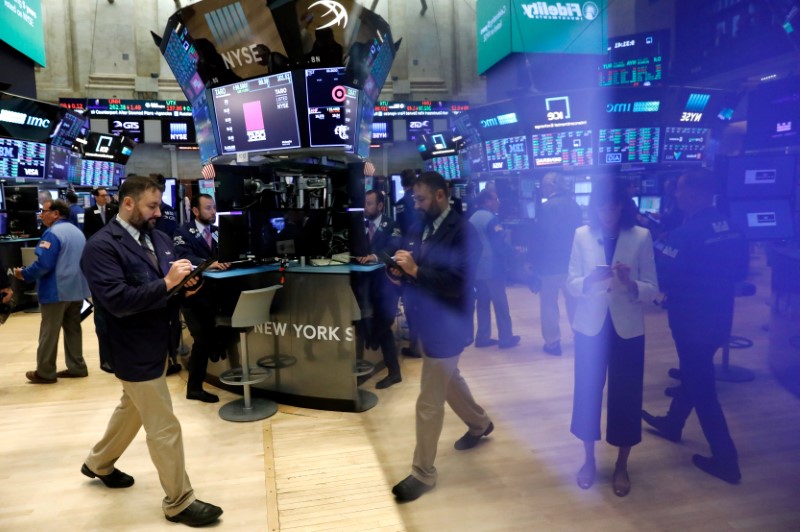Investing.com - Monday saw a positive start for most Asia-Pacific markets, following a tech-driven surge on Wall Street on Friday.
The S&P/ASX 200 eased 0.1%, the Nikkei 225 added 0.8% and the KOSPI 200 saw an increase of 0.6% by 11:20am AEDT (12:20 am GMT).
In the US, stock indices gained on Friday as the Nasdaq Composite lifted 2.1%, the S&P 500 gained 1.6% and the Dow Jones Industrial Average added 1.2%.
Despite a downturn on Thursday, which ended the S&P 500's longest winning streak since 2004, the stock market regained momentum on Friday. This was due in part to Taiwan Semiconductor Manufacturing's (NYSE:TSM) reported increase in October sales, which boosted chip stocks. However, Federal Reserve Chair Jerome Powell's comments about potential interest-rate increases and a weak government sale of long-term debt put some pressure on the market.
Investors seemed to disregard the University of Michigan's preliminary November survey results, released on Friday, which revealed weak consumer sentiment and higher inflation expectations. Some stocks were impacted by earnings reports, but overall, the market showed resilience.
In the commodities market, Brent crude oil increased by 1.8% to US$81.43 a barrel, while gold fell 0.9% to US$1,940.20. Local bond markets saw a slight increase, with the yield on Australian 2 Year government bonds at 4.29% and the 10 Year yield at 4.62%.
In Asia, Chinese shares closed lower, with insurance and auto stocks leading the losses. The Shanghai Composite Index fell 0.5% to 3088.97, while the Shenzhen Composite Index declined 0.4%. Hong Kong shares also closed lower, with the Hang Seng Index down 1.8% at 17203.26. Japan's Nikkei Stock Average edged 0.2% lower to close at 32568.11 due to concerns of further Fed tightening.
European stocks also experienced a drop following losses in Asia. The Stoxx Europe 600 and CAC 40 both fell more than 1%, while the DAX retreated 0.9%. The FTSE 100 fell 1% to 7382.06, tracking losses in European stocks after Powell's warning about potential interest rate hikes. Despite these losses, Brent crude oil saw a 1.1% increase to $80.92 a barrel, giving a boost to oil majors.
